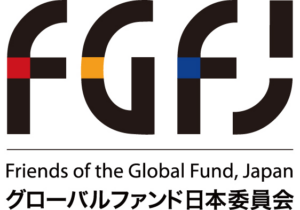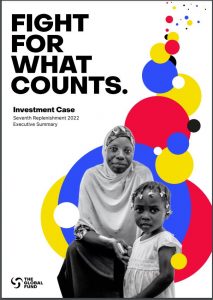2022 marks the Seventh Replenishment for the Global Fund to Fight AIDS, Tuberculosis and Malaria (the Global Fund), in which fundraising efforts occur for the Global Fund’s work during 2023-2025.
Replenishment plans kicked off on February 23-24, 2022 with a preparatory meeting co-hosted by the presidents of: the Democratic Republic of Congo, Kenya, Rwanda, Senegal, and South Africa. The meeting provided an opportunity for Global Fund partners to come together to discuss the fight against AIDS, TB, and malaria and the role the Global Fund can play in preparing for future pandemics. In addition, the meeting provided a platform to present the Investment Case for this year’s Replenishment.
In the Investment Case, titled “Fight For What Counts,” the Global Fund projected that US$18 billion over the next three years will be necessary to get back on track in the fight against AIDS, tuberculosis, and malaria after the disruption of COVID-19, accelerate progress toward achieving the Sustainable Development Goal of “Good Health and Well-Being” (SDG 3) and Universal Health Coverage (UHC), and strengthen pandemic preparedness.
Since its inception 20 years ago, Global Fund partnerships have saved 44 million lives and reduced deaths from the three diseases by 40%. However, as indicated in the Global Fund Results Report released in September 2021, COVID-19 has severely undermined this progress and increased the demand for global funding, leading to the $18 billion Investment Case.
With $18 billion in funding, the Global Fund would be able to:
- Save 20 million lives between and cut the combined mortality rate of AIDS, tuberculosis, and malaria by 64%
- Avert more than 450 million new infections and make way for 58% reduction in morbidity across all three infectious diseases
- Reduce deaths from AIDS, tuberculosis, and malaria to 950,000, a reduction from 2.4 million deaths in 2020 and 4 million deaths in 2005
- Play a catalytic role in expanding domestic financing towards ending the three diseases and strengthening health systems in low-to-middle-income countries
- Strengthen pandemic preparedness
- Invest approximately $6 billion of procured funds to support health care workers, strengthen laboratories, diagnostic equipment, supply chain management, information and financial systems, address drug resistance (including drug-resistant TB), strengthen community systems, and accelerate the shift to a patient-centered care model
- Achieve a 1:31 return on investment–Every $1 invested in the fight against the three infectious diseases yields $31 in health benefits and economic returns, further contributing to the achievement of the overall SDG agenda
The Replenishment Conference will be hosted by the U.S. this Fall, and in a statement issued in November 2021, Secretary Blinken said: “By closely coordinating Global Fund resources with other U.S. global health investments — including those directed through PEPFAR, PMI, and our bilateral tuberculosis programs — we have not only made remarkable progress in preventing and treating three of the leading infectious disease killers on the planet, but also strengthened local health systems, global health security, and pandemic preparedness and response.” He concluded by saying, “The United States looks forward to working with the Global Fund and other donors worldwide to deliver on the promise of a robust Seventh Replenishment Conference.”

